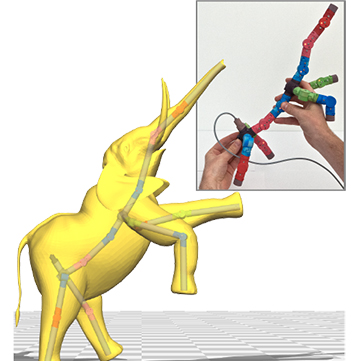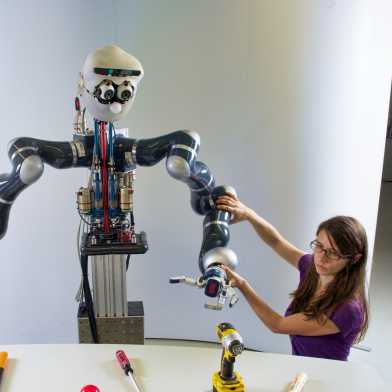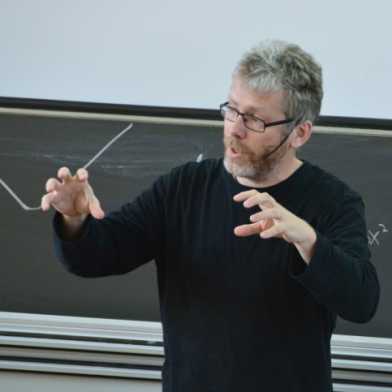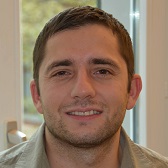06
A versatile joystick for animation artists
- Spotlight
- Video
- Interactive Geometry Lab
- News und highlights
- Cyberphysical systems
- Front – Spotlight
- Animation
- Institute of Visual Computing
- Research

Manipulating 3-dimensional animated characters on a 2D screen is challenging and requires years of training. ETH researchers now make animation artists’ life a little easier with a new input device they can assemble into a shape similar to the virtual character.
Teaching machines how to learn
- Spotlight
- Information Science and Engineering
- Institute for Machine Learning
- Centers and cooperations
- Machine learning
- Front – Spotlight
- Data Analytics
- Data science
- Research

The machines that surround us in everyday life are not only becoming more intelligent, they’re also turning into gifted learners. To prepare the next generation of computer scientists for the challenges presented by this rapidly developing research area, ETH Zurich has joined forces with the Max-Planck-Institute for Intelligent Systems.
Shifting the paradigm: pioneering research network in learning systems established
- Learning and Adaptive Systems
- Spotlight
- Information Science and Engineering
- Institute for Machine Learning
- Computer Vision and Geometry Group
- Centers and cooperations
- Machine learning
- Front – Spotlight
- Data Analytics
- Institute of Visual Computing
- Research

ETH and the Max Planck Institute for Intelligent Systems have joined forces to form a research network in learning systems.
Deobfuscating JavaScript through program analysis and machine learning
- Spotlight
- Secure, Reliable, and Intelligent Systems Lab
- News und highlights
- Programming languages
- Machine learning
- Front – Spotlight
- Research
- Institute for Programming Languages and Systems

Software reliability, piracy and tampering are serious and well known threats the world is faced with. Significant attempts have been made to protect software from reverse engineering and tampering. Last week, the Software Reliability Lab at ETH Zurich, headed by Prof. Martin Vechev, released a system called JSNice which makes obfuscated and minified JavaScript code readable again. The system has already been used by more than 34,000 developers in over 140 countries.
New Intel Parallel Computing Center established at ETH Zurich
- News
- Institute for High Performance Computing Systems
- Scalable Parallel Computing
- Centres

The Scalable Parallel Computing Lab at ETH Zurich will become a member of Intel(R) Parallel Computing Center community. The goal is to tackle the challenges of growing parallelism in high performance computing.